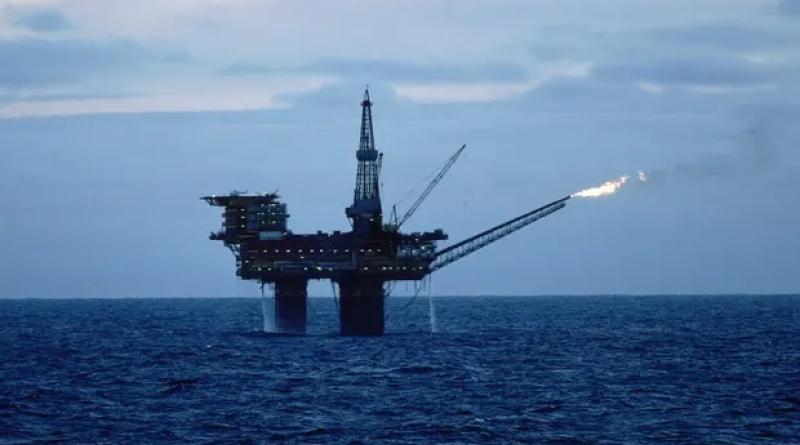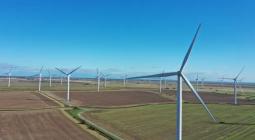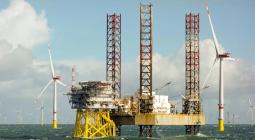North Sea drilling: Greenpeace prepares to challenge ‘disastrous’ UK decision

Greenpeace has attacked the government’s “disastrous” decision to award new licences for oil and gas drilling in the North Sea as it prepares to challenge the move in the high court.
A court hearing on Tuesday will determine whether the environmental group will be permitted a judicial review of the decision, made during Liz Truss’s short-lived time as prime minister.
Last year, her administration kicked off an oil and gas licensing round under which companies could bid for more than 100 new licences to explore for oil and gas.
The North Sea Transition Authority began the process in October, offering up about 900 locations for exploration, and it is expected to conclude in June. It is the first new licensing round since 2019-20.
The decision was carried out by the then energy secretary, Jacob Rees-Mogg, under Truss despite warnings of possible legal action by Greenpeace. The green organisation has since carried out that threat, arguing in its court filing that the new licences will further harm the environment.
The Greenpeace UK climate campaigner Philip Evans said: “We’ve had warning after warning that there must be no new oil, and now time is running out. Yet the government continues to ignore the experts, approving new oil and gas without even bothering to check the full climate impact. That’s why we’re challenging them in the high court.”
Evans added: “Relying on fossil fuels is disastrous for our energy security, the cost of living, and the climate. So why is the government hellbent on approving new licences? It begs the question of whose interests they really serve.”
Evans said the government should instead further strengthen the windfall tax on North Sea oil and gas operators and invest in upgrading Britain’s electricity grid and insulating the country’s leaky housing stock. “This is the only way we can tackle the scandal of the cost of living, guarantee our energy security, and help the climate.”
On Monday, Jeremy Hunt, the chancellor, was asked whether the government would heed calls from oil and gas companies to soften the windfall tax. He said officials would “keep a dialogue” with those companies “because we need to unlock investment in the North Sea”.
The Intergovernmental Panel on Climate Change (IPCC) said last month there must be no new fossil fuel development if the world is to limit global heating to 1.5C. Evans said the energy secretary, Grant Shapps, should explain his rationale if he disagreed with the IPCC assessment.
The government is also expected to imminently approve the permit for Rosebank oilfield, the biggest undeveloped oilfield in the North Sea, despite concerns raised by campaign groups.
On Monday, the governments of the nine countries around the North Sea detailed a strategy to develop green energy in the region to avoid a repeat of last year’s energy crisis, when governments were forced to scramble to replace gas supplies reduced from Russia.
Britain and the Netherlands announced plans for the LionLink interconnector, which will be Europe’s biggest cross-border electricity link. The undersea cable, being developed by Britain’s National Grid and the Dutch electricity network operator TenneT, would be capable of transferring 1.8 gigawatts of power to Britain from a Dutch offshore windfarm.
A government spokesperson said: “It’s vital we continue to maintain our energy security by boosting our homegrown energy supply and strengthening our domestic resilience. While our plans to power up Britain include significant investment in new renewable and nuclear projects, the transition to non-fossil forms of energy cannot happen overnight, as recognised by the independent Climate Change Committee.”
cover photo:The North Sea Transition Authority began the process in October of offering up about 900 locations for exploration. Photograph: Interfoto/Alamy





